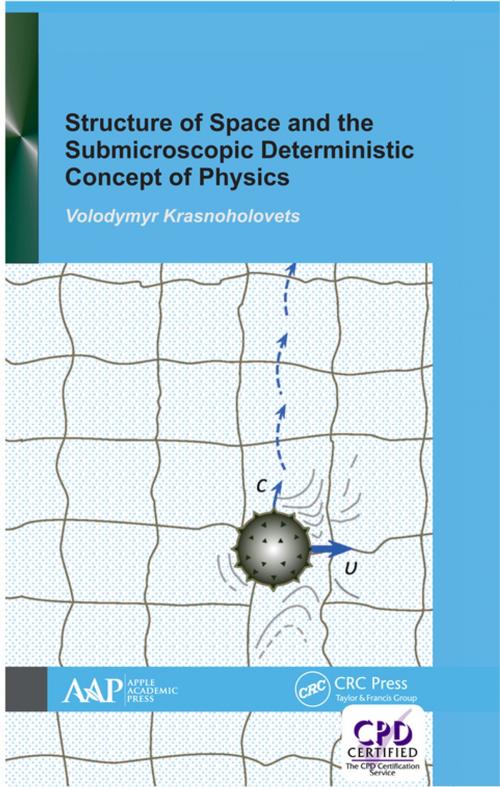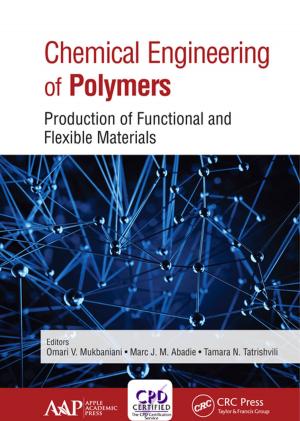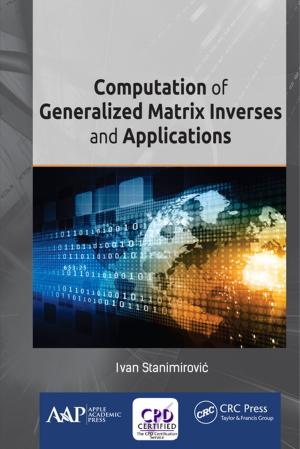Structure of Space and the Submicroscopic Deterministic Concept of Physics
Nonfiction, Science & Nature, Science, Physics, Mathematical Physics, General Physics| Author: | Volodymyr Krasnoholovets | ISBN: | 9781315341385 |
| Publisher: | Apple Academic Press | Publication: | July 6, 2017 |
| Imprint: | Apple Academic Press | Language: | English |
| Author: | Volodymyr Krasnoholovets |
| ISBN: | 9781315341385 |
| Publisher: | Apple Academic Press |
| Publication: | July 6, 2017 |
| Imprint: | Apple Academic Press |
| Language: | English |
This book, Structure of Space and the Submicroscopic Deterministic Concept of Physics, completely formalizes fundamental physics by showing that all space, which consists of objects and distances, arises from the same origin: manifold of sets. A continuously organized mathematical lattice of topological balls represents the primary substrate named the tessellattice. All fundamental particles arise as local fractal deformations of the tessellattice. The motion of such particulate balls through the tessellattice causes it to deform neighboring cells, which generates a cloud of a new kind of spatial excitations named ‘inertons’. Thus, so-called "hidden variables" introduced in the past by de Broglie, Bohm and Vigier have acquired a sense of real quasiparticles of space.This theory of space unambiguously answers such challenging issues as: what is mass, what is charge, what is a photon, what is the wave psi-function, what is a neutrino, what are the nuclear forces, and so on. The submicroscopic concept uncovers new peculiar properties of quantum systems, especially the dynamics of particles within a section equal to the particle’s de Broglie wavelength, which are fundamentally impossible for quantum mechanics. This concept, thoroughly discussed in the book, allows one to study complex problems in quantum optics and quantum electrodynamics in detail, to disclose an inner world of particle physics by exposing the structure of quarks and nucleons in real space, and to derive gravity as the transfer of local deformations of space by inertons which in turn completely solves the problems of dark matter and dark energy. Inertons have revealed themselves in a number of experiments carried out in condensed media, plasma, nuclear physics and astrophysics, which are described in this book together with prospects for future studies in both fundamental and applied physics.
This book, Structure of Space and the Submicroscopic Deterministic Concept of Physics, completely formalizes fundamental physics by showing that all space, which consists of objects and distances, arises from the same origin: manifold of sets. A continuously organized mathematical lattice of topological balls represents the primary substrate named the tessellattice. All fundamental particles arise as local fractal deformations of the tessellattice. The motion of such particulate balls through the tessellattice causes it to deform neighboring cells, which generates a cloud of a new kind of spatial excitations named ‘inertons’. Thus, so-called "hidden variables" introduced in the past by de Broglie, Bohm and Vigier have acquired a sense of real quasiparticles of space.This theory of space unambiguously answers such challenging issues as: what is mass, what is charge, what is a photon, what is the wave psi-function, what is a neutrino, what are the nuclear forces, and so on. The submicroscopic concept uncovers new peculiar properties of quantum systems, especially the dynamics of particles within a section equal to the particle’s de Broglie wavelength, which are fundamentally impossible for quantum mechanics. This concept, thoroughly discussed in the book, allows one to study complex problems in quantum optics and quantum electrodynamics in detail, to disclose an inner world of particle physics by exposing the structure of quarks and nucleons in real space, and to derive gravity as the transfer of local deformations of space by inertons which in turn completely solves the problems of dark matter and dark energy. Inertons have revealed themselves in a number of experiments carried out in condensed media, plasma, nuclear physics and astrophysics, which are described in this book together with prospects for future studies in both fundamental and applied physics.















